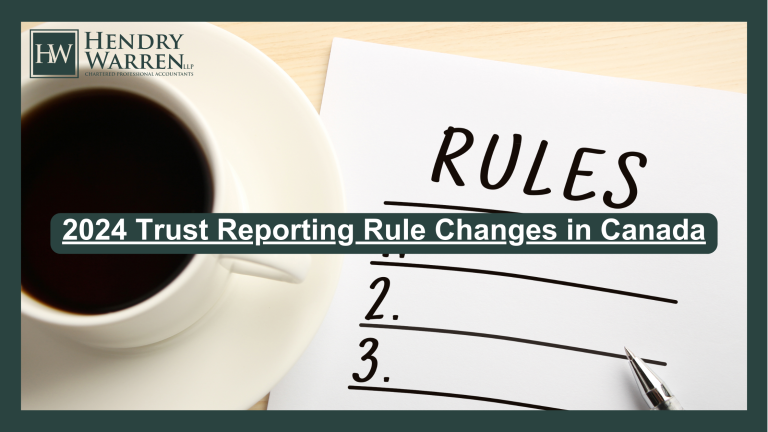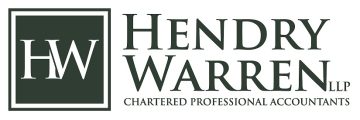2024 Trust Reporting Rule Changes in Canada
Recent updates to trust reporting rules in Canada have raised new compliance requirements, particularly for “bare trusts.” In this post, we’ll explore what a trust is, recent legislative changes, and how these affect you. We recently ran a free webinar on the topic which you can watch here:
What Is a Trust and Its Purpose?
A trust is a legal arrangement where one party, the trustee, holds assets on behalf of another party, the beneficiary. Trusts serve various purposes, including:
- Tax planning: Income splitting and multiplying lifetime capital gains exemptions.
- Creditor protection: Shielding assets from potential claims.
- Estate planning: Facilitating the transfer of wealth with flexibility and tax efficiency.
What Is a Bare Trust?
A bare trust occurs when the trustee acts purely as an agent for the beneficiary, holding legal title to the property without real decision-making authority. The beneficiary remains responsible for all tax reporting related to the assets in the trust. For example, if a parent is added to the legal title of a child’s home purely for mortgage purposes, the parent is merely a trustee, and the child is the sole beneficial owner.
Key Legislative Changes for 2023-2024
Historically, bare trusts did not have to file trust income tax returns. However, significant changes were introduced in 2023 that expanded the filing requirements to include bare trusts. This change required both regular and bare trusts to file returns and disclose information about trustees, beneficiaries, and settlors.
- Penalties: Missing filing deadlines could incur a penalty of $25 per day, up to a maximum of $2,500, even if no taxes are owed.
- Filing Deadline: Trust returns are typically due 90 days after the year-end, with most trusts following a December 31 year-end, making the deadline March 31 of the following year.
- CRA Relief: The CRA offered a temporary reprieve for bare trusts for the 2023 tax year, exempting them from penalties if they missed the filing deadline.
2024 Proposed Amendments
In response to widespread criticism, the Canadian government announced proposed changes in August 2024. These amendments narrow the scope of trusts that must file returns, reducing the compliance burden on certain arrangements:
- Filing Requirements for Bare Trusts: Bare trusts will now need to file returns beginning in 2025, not 2024, with a more limited scope of applicability.
- Updated Exemptions:
- Trusts holding specific assets worth $50,000 or less were exempt under previous rules, but this now applies to all asset types.
- Trust accounts that hold separate fund accounts for clients pursuant to the rules of professional conduct or law of Canada or a province, that hold funds of $250,000 or less for the entire year (e.g., by lawyers or real estate agents) are now exempt.
New Exemptions for 2024 and Beyond
The 2024 amendments also introduced new filing exemptions for bare trust structures:
- Trusts with Small Assets: If all trustees and beneficiaries are individuals and related, and the trust holds $250,000 or less in certain assets, such as mutual funds or GICs, the trust may be exempt.
- Principal Residence Exemption: A bare trust holding a property that qualifies as a principal residence for any legal owner that is an individual and related to all other legal owners will now be exempt from filing requirements, with no dollar limit attached.
- General Partners Holding Property for Partnerships: Trusts where a general partner holds property as an agent for a partnership (which files its own tax return) are exempt from separate filing.
Planning Ahead for 2025
As bare trust reporting requirements return in 2025, individuals and businesses should review their arrangements:
- Review Trust Arrangements: Assess existing trust setups to determine if they will be caught by the new filing rules.
- Wind Up or Restructure: If a bare trust arrangement has a filing requirement for 2025, consider taking action before the end of 2024 to avoid filing obligations for 2025.
Final Thoughts
The 2024 amendments provide much-needed relief for many bare trust arrangements. However, navigating these changes requires careful planning and consultation with tax advisors to ensure compliance and avoid penalties.
By staying proactive and understanding the evolving regulations, you can optimize your trust’s setup while avoiding unnecessary reporting burdens.


